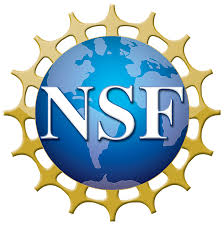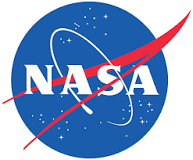In this section, you can find out more about upcoming seminar programs sponsored by the Center. These are organized chronologically, but could fall into a few different categories. Typically, their focus will be on bringing CCE research to other institutions, or improving our broader impacts practices. Please contact Christopher Parsons if you have any questions about the program or are interested in hosting seminars at your institution.
Past Special Seminars
December 7, 2018, 2:00-3:00
A well-resolved pre-LUCA history of Class I aminoacyl-synthetase proteins reveals a critical link to the RNA world
Greg Fournier, Massachusetts Institute of Technology
MoSE 3201A, Georgia Tech
Translation is one of the most ancient and essential biological processes. An important step in the process is aminoacylation, by which tRNA are loaded with the amino acid cognate to their anticodon specificity. This process is carried out in all life by two unrelated groups of proteins, Class I and Class II aminoacyl-tRNA synthetases (aaRSs), each class containing protein families with specificity for 10 of the 20 canonical amino acids. As all aaRS families are present across all 3 Domains of life, it has been inferred that the lineage containing LUCA inherited a full "modern" collection of aaRS. Therefore, these protein families must have diversified from a common ancestor pre-LUCA. While clearly homologous, extensive structural and sequence divergence within each family makes alignment and phylogenetic reconstruction extremely difficult. Previous phylogenetic reconstructions of pre-LUCA aaRS divergences have therefore only used small highly conserved regions of the proteins associated with the catalytic aminoacylation domain, leading to poorly resolved histories due to an insufficient number of informative sites.
January 31, 2018
CSN Professional Development Webinar: Non-Traditional Chemistry Career Panel
WebEx
September 23, 2017
Life in the Cosmos: Past, Present, and Future
Children's Healthcare of Atlanta Seminar Room, Engineered Biosystems Building, Georgia Tech, 8:00-4:00
More information
Registration
Among the oldest questions conceived by humans: What is the origin of life, and does life exist on other worlds? Georgia Tech will host a day-long public Symposium on Astrobiology and Society in Fall 2017 with sessions dedicated respectively to Origin and Evolution of Life on Earth and The Search for Life Beyond our Home Planet. Each session will be rounded out by a half-hour discussion led by a panel of distinguished scientists and humanists. Anticipating discoveries that will alter our very concept of life, astrobiology pushes us to reflect upon the meaning of “creation”, our place in it, and how to accommodate scientifically plausible alternatives to longstanding hypotheses and myths. While astrobiology is often presented to the public as ‘other worldly’, and can easily carry utopian visions of possibility and hope, the force of astrobiology is first and foremost terrestrial. The aura of new worlds reminds us that our cosmic ‘other worldly discoveries’ above all concern the planet on which we live. Analysis of data from vent plumes in our solar system or in Pacific Ocean trenches show the ways our solar system has become a laboratory for better understanding our own planet. The symposium and related interviews with participants will be recorded and provide substrate for a documentary that focuses on how astrobiology drives research across science and the humanities, and sparks open and imaginative discussion about Big Questions, including, What is life? What is the value of different life forms? What is humankind’s destiny?
September 3, 2017
Who Are We, and Where Are We Going? The Human Search for Origins and Life Beyond Earth
Christopher Parsons, Kenneth Knoespel, Loren Williams, Chris Reinhard, Amanda Stockton, Lisa Yaszek, Luju Ojha, and Britney Schmidt
Dragon Con Science Track, Hilton 210-211, 11:30-2:00
More Information
Where do we come from? Does life exist elsewhere in the universe? While the latter may seem like the stuff of 21st century science fiction, both questions have been integral to myriad cultures for millennia. Over the last decades however, research the life and physical sciences has brought these inquiries into the realm of science, and given rise to the field of astrobiology. But what do we know about our origins? And how do we search for life? The first part of this interactive symposium will introduce current scientific thought on the beginnings of our biochemistry, the evolution of our planet as a habitable system, and how we search for signs of life in space. The second half will explore the mutually influential roles science and science fiction, the implications of the discovery of water on Mars, and what life might look like on worlds far different than our own. Audience members are encouraged to come curious and ready with questions about the science and its place in our broader human context.
April 20, 2017
Nick Hud, Georgia Tech College of Science Frontiers in Science Lecture Series
Title: Darwin's Warm Little Pond: Searching for the Chemical Origins of Life
Time: 7:30 PM
Clary Theater, Bill Moore Student Success Center, 225 North Ave. NW, Atlanta, GA 30332
Charles Darwin once speculated that biological molecules might spontaneously form in a “warm little pond.” Then he concluded that it was “mere rubbish” to think about the origin of life during his time. Now, 150 years later, tremendous advances In biology and chemistry have made it possible to explore—using model reactions and genomic data—the chemical origins and early evolution of life. This combination of bottom-up (chemical) and top-down (biological) approaches to uncovering the origins of life is helping to write the “missing first chapter” of Darwin’s book, On the Origin of Species.
February 23, 2017
Facundo Fernandez, Xavier University of Louisiana
Title: Mass Spectrometry and the Origins of Life
Time: 12:15 PM
New Orleans, LA
A pressing question in origins-of-life research is how polypeptides arose from amino acids before the ribosome. Recently, we discovered a plausible mechanism for abiotic peptide bond formation enabled by alpha-hydroxy acids, amino acid analogs also present on the early Earth, in a day-night environmental cycling setting (Angew. Chem. Int. Ed. 2015, 54, 9871). Using this approach, peptides with a mixture of amide and ester backbone linkages (depsipeptides) were formed. The amino acid content of depsipeptides was enriched over repeated wetting/drying cycles, evolving into traditional peptide sequences. Based on this chemistry, we prepared model prebiotic “soups” containing depsipeptides and analyzed their sequence and structure by ultra-performance liquid chromatography - traveling-wave ion mobility - tandem mass spectrometry (UPLC-TWIM-MS/MS), along with custom bioinformatics approaches. Results indicated that sequence space randomness varied depending the set of amino acids and alpha hydroxy acids polymerized. To better study this chemistry and the resulting complex mixtures, we are also developing new tools to enable more sensitive and controlled ionization, and detection of depsipeptides and other species on the surface of reactive substrates, such as minerals. All these interdisciplinary activities are being pursued within the context of our NSF/NASA Center for Chemical Evolution
February 24, 2017
Facundo Fernandez, Lousiana State University
Title: New Developments in Mass Spectrometry-based Metabolomics
Time: 3:30 PM, A101 Life Science Auditorium
Baton Rouge, LA


